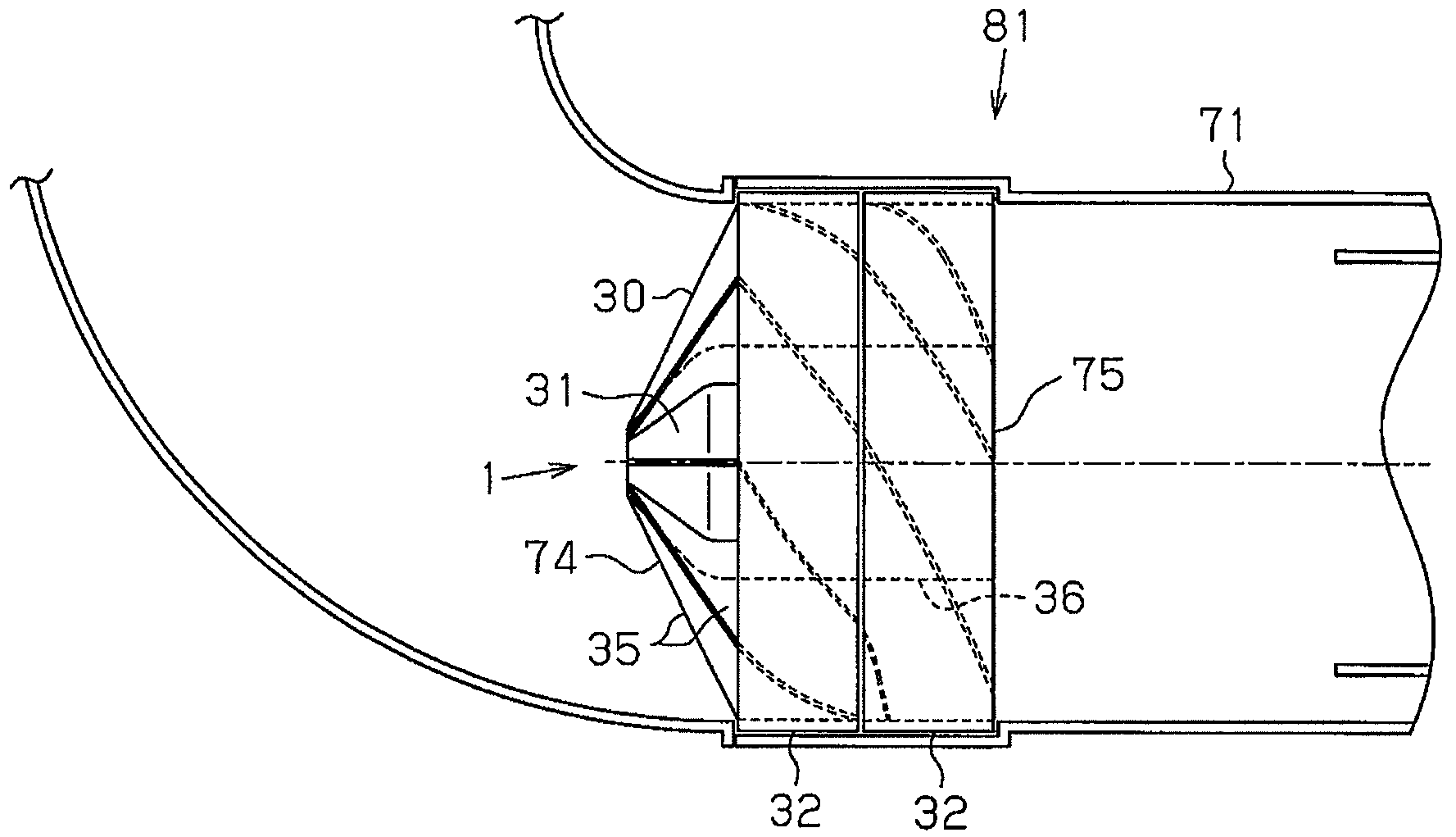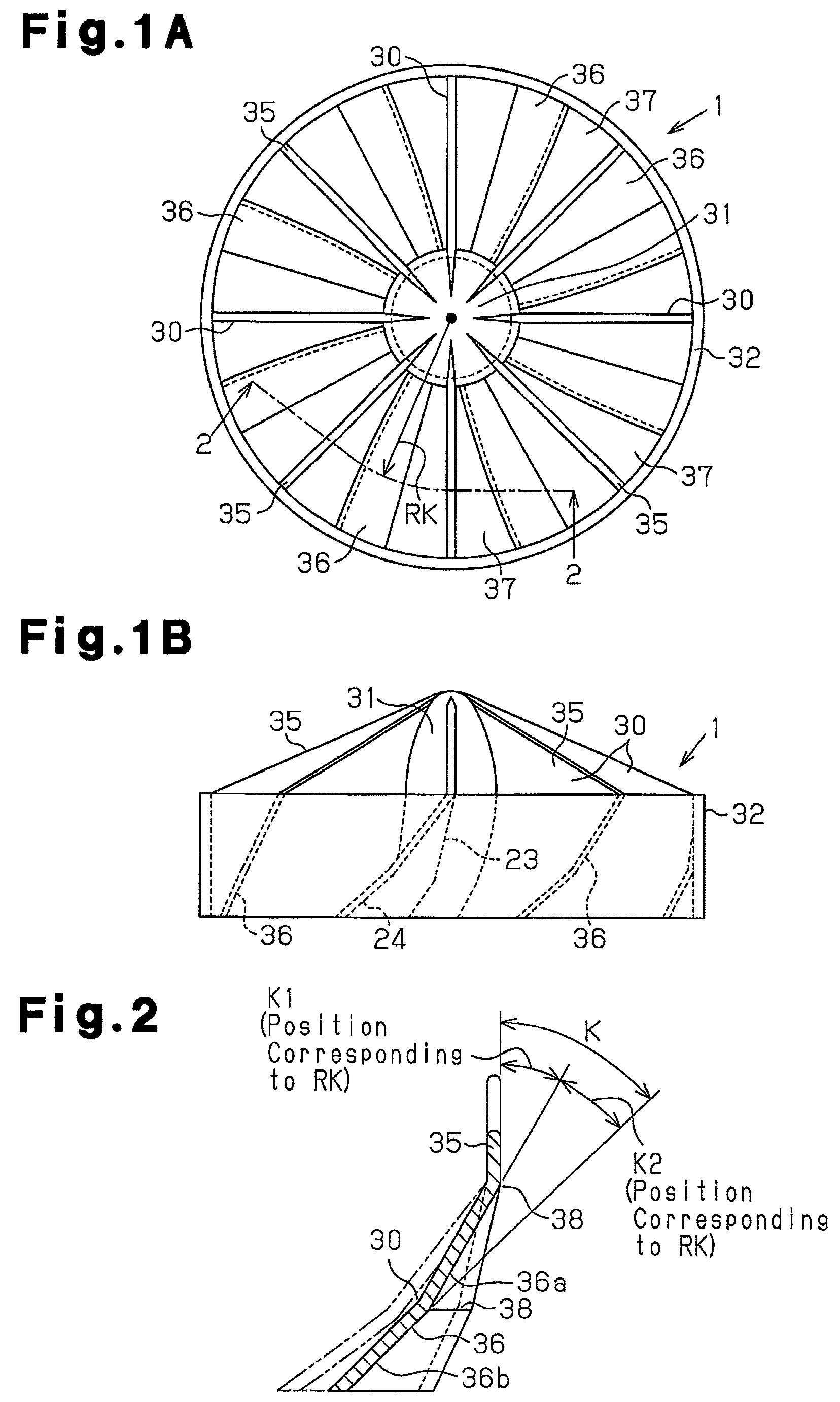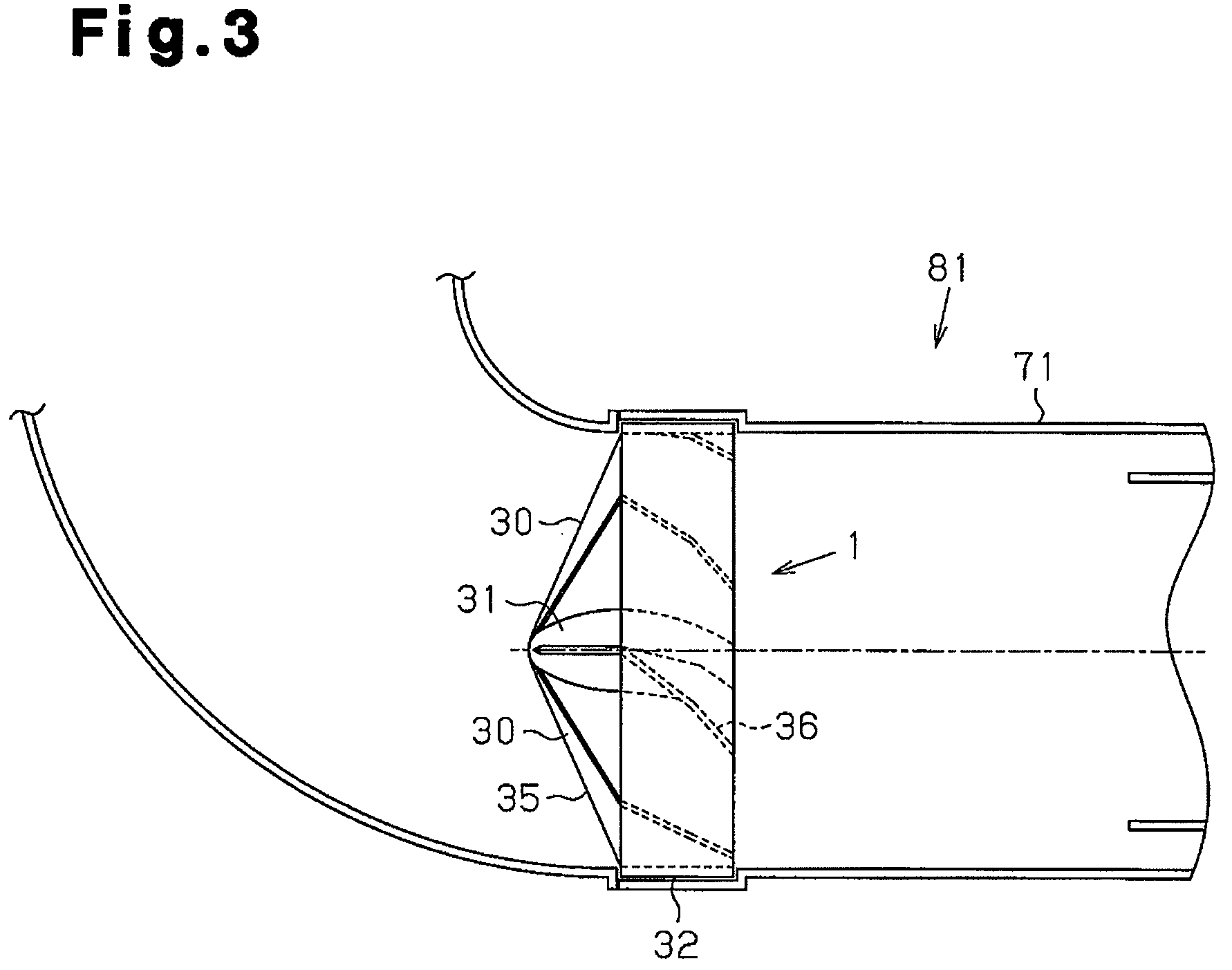Swirl generator
a generator and spindle technology, applied in the direction of machines/engines, combustion air/fuel air treatment, separation processes, etc., can solve the problems of only limited space in the engine compartment for accommodating, noise generation in the intake pipe, and the size of the vehicle, so as to prevent the generation of noise and pulsation, and effectively isolate dust particles
- Summary
- Abstract
- Description
- Claims
- Application Information
AI Technical Summary
Benefits of technology
Problems solved by technology
Method used
Image
Examples
first embodiment
[0022]A swirl generator according to a first embodiment of the present invention will now be described with reference to FIGS. 1 to 7. Same or like reference numerals are given to components of the first embodiment that are the same as or like corresponding components of the prior art.
[0023]As shown in FIG. 9, a swirl generator 1 is incorporated in a duct 71. The duct 71 forms an air passage extending to a filter element 88 in a air cleaner body 86. As shown in FIG. 3, the swirl generator 1 has a nose cone 31, a ring 32, and a plurality of guide vanes 30. The nose cone 31 configures a central shaft body of the swirl generator 1. The guide vanes 30 are arranged between the nose cone 31 and the ring 32. The guide vanes 30 are formed integrally with the nose cone 31 and the ring 32. A guide fin 35 is located in an upstream portion of each of the guide vanes 30. A deflecting fin 36 is arranged in a downstream portion of each guide vane 30. Each of the guide fins 35 is formed integrally ...
example
[0034]The example used in the simulation met the following conditions.
The radius (the inner diameter) of the ring 32=32.75 mm
The first angle K1 (on the circle with the radius RK=25 mm) =30°
The second angle K2 (on the circle with the radius RK=25 mm)=20°
The diameter of the nose cone 31=25 mm
The height of the ring 32 (the deflecting fin 24)=22.4 mm
The inner diameter of the duct 71× the length of the duct 71 =99×140 mm
The intake air amount=15 m3 / min
[0035]FIG. 5 represents the result of the simulation with the example. FIG. 5 is a cross-sectional view taken along line 5-5 of FIG. 4. In the portions B1 to B5 of FIG. 4, the speed of the air flow becomes lower as the dot density becomes greater. In other words, in the dot-free portion (B5), the speed of the air flow is maximally high. The air thus flows smoothly and forms a laminar flow.
[0036]With reference to FIG. 5, according to the result of the simulation with the example, the light-toned portion B5 (the laminar flow range) extends fro...
second embodiment
[0045]A swirl generator according to a second embodiment of the present invention will hereafter be explained. The explanation focuses mainly on the differences between the second embodiment and the first embodiment.
[0046]As shown in FIG. 8, the swirl generator 1 is formed by two separate members 74, 75, which are connected in series. The separate members 74, 75 are divided from each other along a plane perpendicular to the axis of the nose cone 31. The distal portion of the nose cone 31 and the guide fins 35 are arranged solely in the separate member 74.
[0047]The second embodiment has the following advantage.
[0048](3) If, for example, the swirl generator 1, which has an elongated shape extending along the axis of the swirl generator 1, does not have a divided structure and the upstream opening end and the downstream opening end of each clearance 37 between the corresponding adjacent pair of the deflecting fins 36 are circumferentially offset from each other, the opening ends cannot...
PUM
| Property | Measurement | Unit |
|---|---|---|
| inclination angle | aaaaa | aaaaa |
| inclination angles | aaaaa | aaaaa |
| inclination angles | aaaaa | aaaaa |
Abstract
Description
Claims
Application Information
 Login to View More
Login to View More - R&D
- Intellectual Property
- Life Sciences
- Materials
- Tech Scout
- Unparalleled Data Quality
- Higher Quality Content
- 60% Fewer Hallucinations
Browse by: Latest US Patents, China's latest patents, Technical Efficacy Thesaurus, Application Domain, Technology Topic, Popular Technical Reports.
© 2025 PatSnap. All rights reserved.Legal|Privacy policy|Modern Slavery Act Transparency Statement|Sitemap|About US| Contact US: help@patsnap.com



